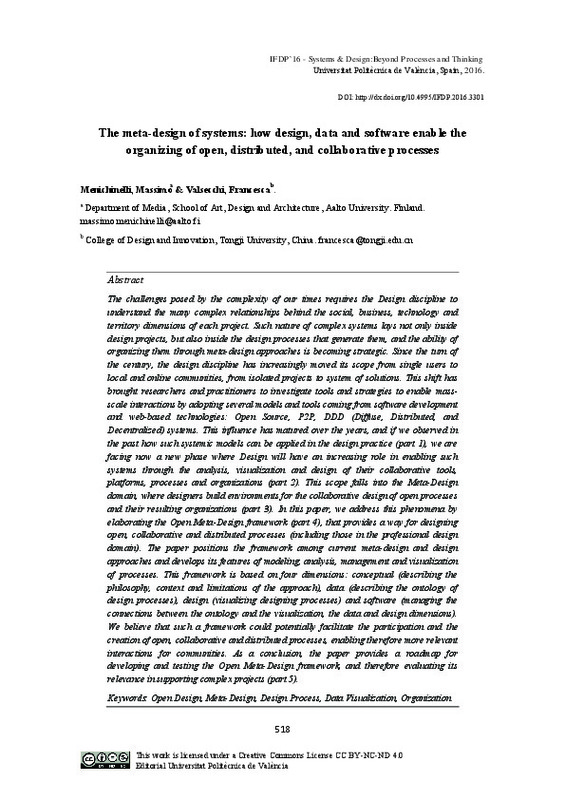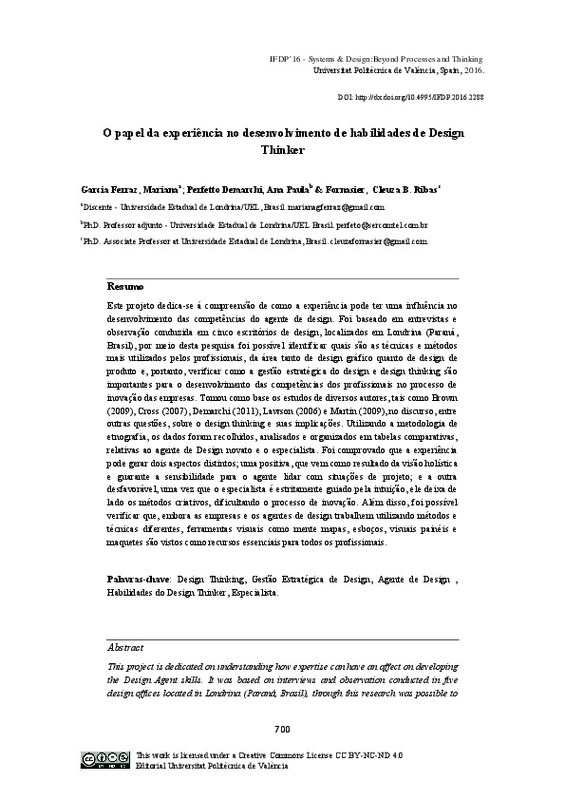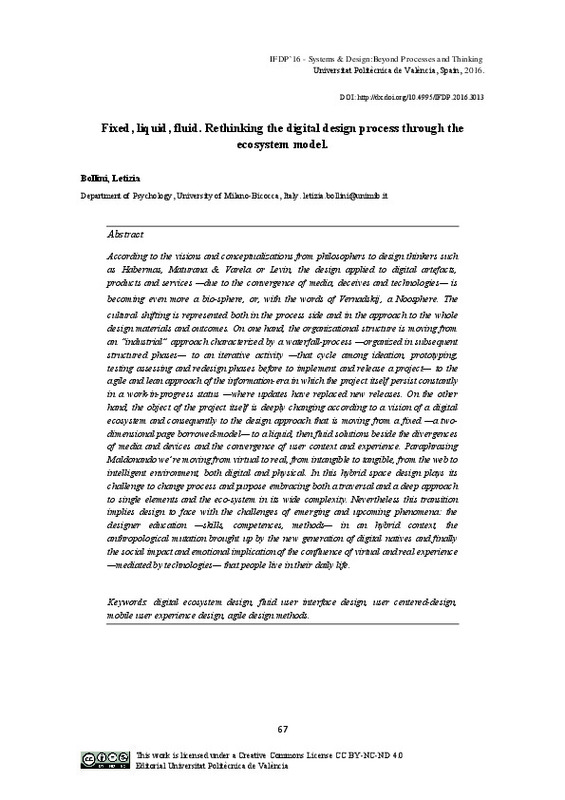JavaScript is disabled for your browser. Some features of this site may not work without it.
Buscar en RiuNet
Listar
Mi cuenta
Estadísticas
Ayuda RiuNet
Admin. UPV
The meta-design of systems: how design, data and software enable the organizing of open, distributed, and collaborative processes
Mostrar el registro completo del ítem
Menichinelli, M.; Valsecchi, F. (2016). The meta-design of systems: how design, data and software enable the organizing of open, distributed, and collaborative processes. En Systems&design:beyond processes and thinking. Editorial Universitat Politècnica de València. 518-537. https://doi.org/10.4995/IFDP.2015.3301
Por favor, use este identificador para citar o enlazar este ítem: http://hdl.handle.net/10251/87800
Ficheros en el ítem
Metadatos del ítem
| Título: | The meta-design of systems: how design, data and software enable the organizing of open, distributed, and collaborative processes | |
| Autor: | Menichinelli, Massimo Valsecchi, Francesca | |
| Fecha difusión: |
|
|
| Resumen: |
[EN] The challenges posed by the complexity of our times requires the Design discipline to
understand the many complex relationships behind the social, business, technology and
territory dimensions of each project. Such ...[+]
|
|
| Palabras clave: |
|
|
| Derechos de uso: | Reconocimiento - No comercial - Sin obra derivada (by-nc-nd) | |
| ISBN: |
|
|
| Fuente: |
|
|
| DOI: |
|
|
| Editorial: |
|
|
| Versión del editor: | http://ocs.editorial.upv.es/index.php/IFDP/IFDP/paper/view/3301 | |
| Título del congreso: |
|
|
| Lugar del congreso: |
|
|
| Fecha congreso: |
|
|
| Tipo: |
|











